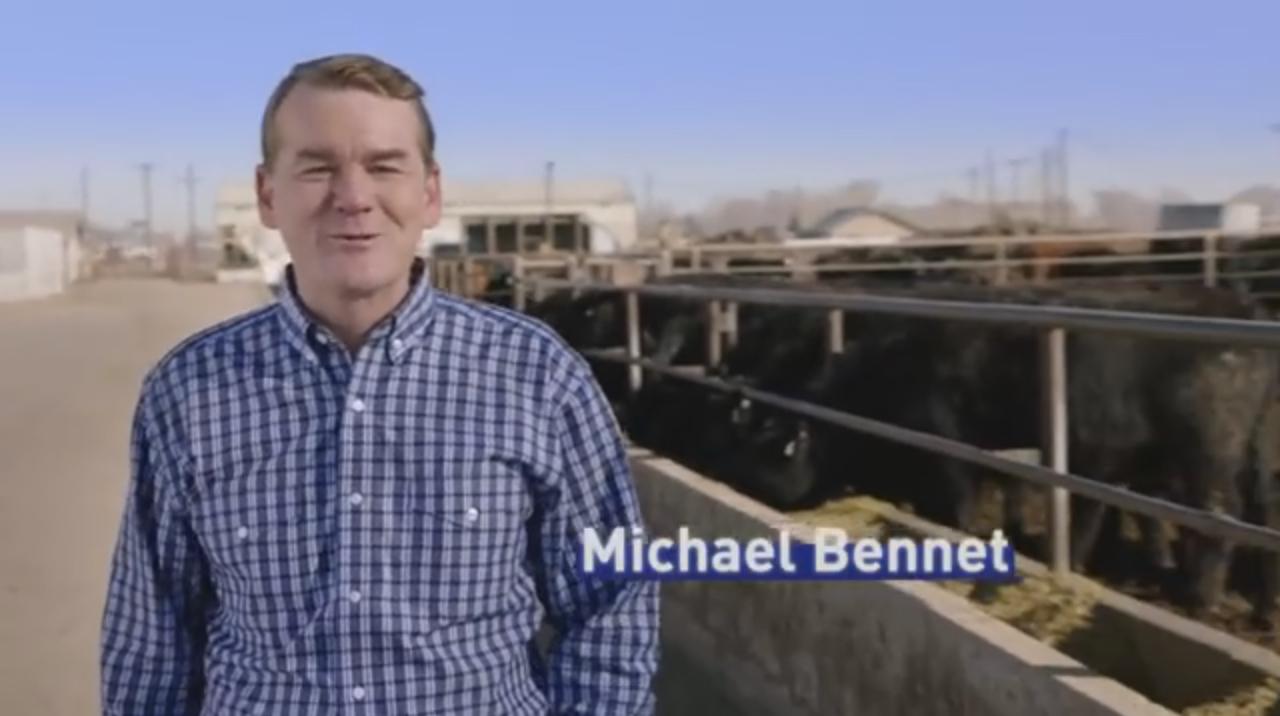
After a brief respite, political ads return to Colorado's TV screens this week. And there’s a hint of the deluge to come in the fall.
U.S. Sen. Michael Bennet is airing his first ad starting Thursday through April 18 in Denver and Colorado Springs. The Republicans haven't yet decided on who they will endorse to oppose Bennet.
The ad, titled “Treasure,” focuses on Bennet’s success in allowing craft brewers to sell leftover grains to local farmers.
The Bennet campaign is spending nearly $289,000 to air the ad almost 400 times on at least eight stations.
About a dozen candidates are vying for the Republican nomination to challenge Bennet. Four turned in petitions that must be verified by the Secretary of State. Others will try to make the June 28 ballot at the GOP state assembly this weekend in Colorado Springs.
Senate candidate Jon Keyser’s used the opportunity to send a news release bashing Bennet on foreign policy. GOP party spokesman Kyle Kohli echoed the criticism.
“It definitely shows that Democrats are concerned about this seat,” he said.
Here’s a look at the stations that have reported Bennet ads to the Federal Communications Commission: 
Two years ago, incumbent Democratic Sen. Mark Udall began advertising on April 23 and ran TV spots through Election Day save for a couple of weeks in June. His opponent Republican Cory Gardner – the eventual winner of the contest – ran TV ads from May 26 through Election Day.
Meanwhile, the Democratic presidential nominee isn’t certain yet. But a super PAC supporting Hillary Clinton is already reserving ad time for the fall.
Priorities USA Action, a PAC that accepts unlimited contributions, originally formed in 2008 to support President Barack Obama’s candidacy. It is now backing former senator and Secretary of State Clinton in her efforts to win the White House.
The PAC reserved nearly 3,000 spots at a cost of nearly $3.6 million at five TV stations in Denver and Colorado Springs. It’s likely that some stations have yet to report reserved time to the FCC.
The Colorado reservations are part of a larger, $70 million buy including the swing states of Ohio, Nevada, New Hampshire, Iowa, Virginia and Florida.
Those ads are scheduled to start in early August and continue through Election Day on Nov. 8. 
And the PAC is almost certain to add to those reservations, said spokesman Justin Barasky.
“We’ll likely go up during the primary, but it won’t be geared to the primary,” he said. “We intend to spend heavily on radio and other digital."
Barasky said the early contracts allow the PAC to reserve time on popular shows for the fall. Priorities USA is spending $11,000 for 30-second ads on the singing competition The Voice, for example, and up to $15,000 for 30-second ads on Thursday night NFL games.
And the House Majority PAC reserved $681,600 worth of time on three Denver stations for the week before the November election. 
Documents filed with the FCC didn’t specify which U.S. House races the ads will target. But incumbent GOP Rep. Mike Coffman is facing a challenge from former state Senate President Morgan Carroll in the 6th Congressional District.
And Democratic state Sen. Gail Schwartz filed papers Thursday with the Federal Election Commission to challenge incumbent Republican Rep. Scott Tipton in the 3rd Congressional District.
Analysis of FCC ad contracts indicates that Democratic campaigns tended to reserve time earlier than Republican campaigns and PACs in 2012 and 2014. While Democrats held early leads, Republican candidates and outside groups ended up spending the most on TV ads in 2014.
Gardner was outspent by Udall in 2014 and faced greater negative TV advertising by outside groups, yet he still managed to defeat the incumbent U.S. senator.








